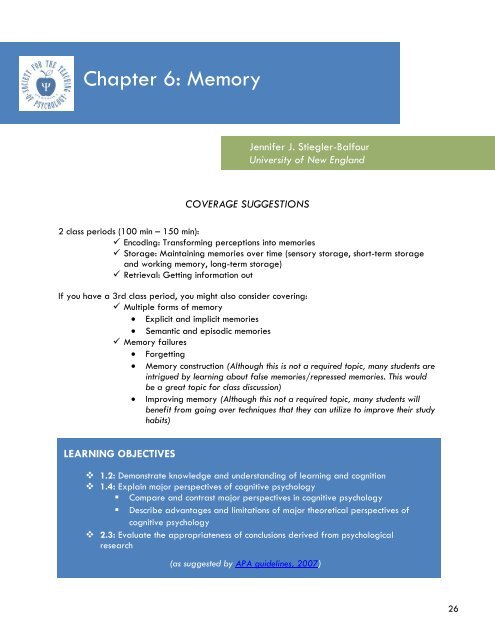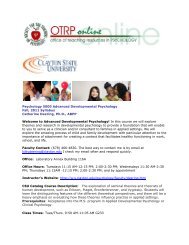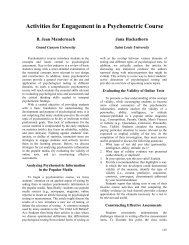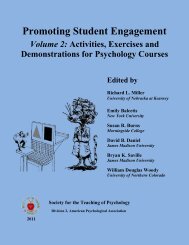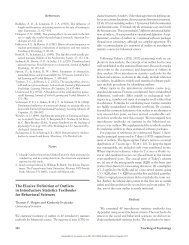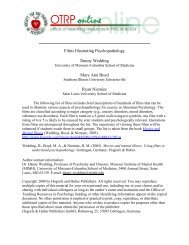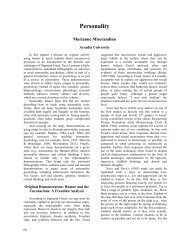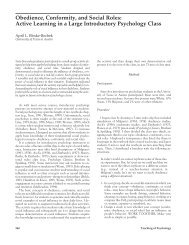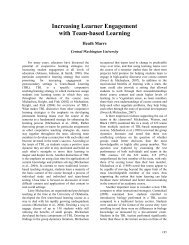INTRODUCTORY PSYCHOLOGY TEACHING PRIMER Early Career ...
INTRODUCTORY PSYCHOLOGY TEACHING PRIMER Early Career ...
INTRODUCTORY PSYCHOLOGY TEACHING PRIMER Early Career ...
You also want an ePaper? Increase the reach of your titles
YUMPU automatically turns print PDFs into web optimized ePapers that Google loves.
Chapter 6: Memory<br />
COVERAGE SUGGESTIONS<br />
2 class periods (100 min – 150 min):<br />
Encoding: Transforming perceptions into memories<br />
Storage: Maintaining memories over time (sensory storage, short-term storage<br />
and working memory, long-term storage)<br />
Retrieval: Getting information out<br />
If you have a 3rd class period, you might also consider covering:<br />
Multiple forms of memory<br />
• Explicit and implicit memories<br />
• Semantic and episodic memories<br />
Memory failures<br />
• Forgetting<br />
• Memory construction (Although this is not a required topic, many students are<br />
intrigued by learning about false memories/repressed memories. This would<br />
be a great topic for class discussion)<br />
• Improving memory (Although this not a required topic, many students will<br />
benefit from going over techniques that they can utilize to improve their study<br />
habits)<br />
LEARNING OBJECTIVES<br />
Jennifer J. Stiegler-Balfour<br />
University of New England<br />
1.2: Demonstrate knowledge and understanding of learning and cognition<br />
1.4: Explain major perspectives of cognitive psychology<br />
Compare and contrast major perspectives in cognitive psychology<br />
Describe advantages and limitations of major theoretical perspectives of<br />
cognitive psychology<br />
2.3: Evaluate the appropriateness of conclusions derived from psychological<br />
research<br />
(as suggested by APA guidelines, 2007)<br />
26


